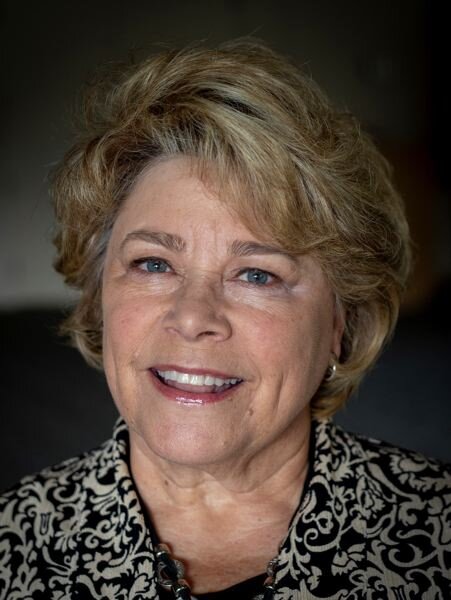In the pursuit of intentional dialogue, the WAIC team developed, discussed, debated, and approved a questionnaire for Wilsonville’s Mayoral and City Council candidates. Our goal is to raise awareness of Wilsonville’s greatest diversity, equity, and inclusion gaps, and how we together might solve them.
After reading this, read their responses about transportation, police oversight, homelessness, and universal broadband.
Combine the fact that only 9% of Wilsonville is middle income, with housing prices rising 40% in the last four years, and homeownership is a fleeting dream for many. Because homeownership is central to American culture, a complex system of government and private market factors make it the key to wealth building. Not surprisingly, household wealth in America has a historic and systemic 12:1 gap between white and Black families.
3. We know that it will be popular to support greater homeownership, but how will you ensure that your approach to housing reaches those most in need and addresses the historic and systemic race-based wealth gap?
Mayor candidates:
Julie Fitzgerald
The current City Council just unanimously adopted the Equitable Housing Strategic Plan. The next step is to analyze the options presented in that plan and determine how to implement options. That is the opportunity to develop housing options for those in need in a way that addresses the systemic race-based wealth gap.
As part of its work to be more equitable and inclusive and support Wilsonville's Inclusivity Resolution, Wilsonville should review its traditional routines for informing and involving citizens in the public process, so that the diversity of the public participating can expand. Examples of routine changes may include examining traditional ways of convening citizens, sharing information, and asking for citizen involvement, for the benefit of increasing the diversity of citizen engagement.
The fastest-growing ethnic group in Wilsonville is Latinx. The City has been developing more materials in Spanish and should continue to do more in that regard. I am a proponent of developing networks with communities of color through peer-peer referrals, and through faith, school, arts, and cultural opportunities in a way that is preferred by that community, which would be in addition to traditional mass media publicity activities. The establishment of regular neighborhood town halls, even in a video format, as may be required due to the pandemic, is a way to improve citizens' diversity participating in city activities. I will use best practices to involve more people of color in city surveys, town halls, open houses, and in Citizen's Academy, task forces, boards, commissions, and also local elections. As the Equitable Housing Strategic Plan is developed, we will want to hear ideas and interests from our communities of color, especially the Latinx community which is the largest and fastest-growing communities of color in Wilsonville.
Wilsonville should use best practices in the field to expand on traditional methods of convening community members to improved inclusive social connections and diversify citizen involvement. Examples may include changing the way the news of events is shared and the dates, times, and gathering locations. The standard transportation offerings available for regular night meetings at City Hall may add many barriers to attendance. Often, lack of time due to work hours is a barrier to participation in city events and meetings or lack of child care and transportation. Through significant outreach, practical ideas for improving access can be identified and implemented. Outreach to communities of color may also be improved by using non-traditional channels such as bulletins or communications offered by places of worship, employers, schools, sports activities, and favored cultural institutions.
The City should invest in diversifying enrollment in its Citizen's Academy too, as a gateway to many other forms of citizen involvement, from applying for boards and commissions to running for elected office.
Ben West
It was an honor to chair the city’s Equitable Housing Strategic Task Force. As mayor, I will continue to promote and advocate for policies that allow more of our residents to become first time home buyers, achieve the dream of homeownership and begin to create wealth for themselves and their families. Through a multitude of policy mechanisms, we can accomplish these lofty goals.
First, I support the city partnering with non-profit organizations to establish a down payment assistance program for first time home owners.
Second, I support tax abatement programs for first-time homebuyers, which will assist in keeping a homeowner’s monthly payment lower, and I will partner with builders and developers to provide first-time home buyer incentive packages. It is my vision for Wilsonville that we lead the Greater Portland area, by percentage, in new first time home owners. This three pronged strategy will ensure well over 90% of funding reaches the people who need it. As we put those policies in place we need to be diligent to make sure that all people historically marginalized or disparately impacted will not face roadblocks to these programs.
City Council candidates:
Imran Haider
Yes, I would really like more houses to be built in Wilsonville. I think that by itself can help create a better balance with prices by increasing supply in a scarce market. We could also research a plan to create incentives for first-time homebuyers, especially those with diverse backgrounds. Affordable living with a diversity of housing styles would be key to help the gap.
The race-based wealth gap goes into a complex puzzle of many different historical factors though. In my view, it is about education, access to education, job opportunities for well-paying jobs, and yes, also equal treatment. That is something we can continue to work towards in society and I am happy and willing to lead those challenging conversations after facing adversity in my life from being placed in categories by others.
Kristin Akervall
Redlining and exclusionary coding has contributed to the historic and systemic race-based wealth gap. I see benefit in creating neighborhoods that have a variety of homes available to community members. This encourages opportunity for people that have a wide array of lived experiences. But, we also need to be careful with how changes to residential zoning are implemented and that they result in quality neighborhoods that truly serve the diverse populations originally intended to help.
As stated in the Equitable Housing Strategic Plan adopted by Council, “Much of what the City needs to learn about housing equity will require careful listening, especially to those who understand housing inequities first-hand.” When the Planning Commission recommended adoption of the plan, they also recommended that the City engage some form of a specific DEI group that would be able to help with the implementation of this plan. As a council member, I supported this concept. I also note that Wilsonville has recently received a grant to do increased outreach and relationship building specifically with the Latinx community. This work will be wrapped into future housing plans.
Another part of the plan I support is the need for maintenance and expansion of quality subsidized affordable housing stock. This is specifically addressed by actions: explore the implementation of transit-oriented development near the City’s transit station and create housing tax abatement programs to achieve housing diversity and affordability. When we talk about “livability” and wanting to promote the livability of Wilsonville, to me, that means promoting safety, opportunity, and a sense of belonging for all people. This must be extended to ALL in our community for us to be successful.
Joann Linville
I believe homeownership is the principle way families build generational wealth. Research has suggested that income, marital rate and credit score explain the greatest proportion of black-white homeownership gap and reflect the historic and systemic race based wealth gap. Additionally, many persons of color were hardest hit by the 2008 housing crisis and have shown far less recovery than other populations.
Strategies appropriate for our local government include:
- Identify and support specific strategies to implement Wilsonville's Equitable Housing Strategic Plan that look for opportunities to modernize local land use policies, including zoning and permitting, to rebalance housing supply and demand.
- Explore and expand production of affordable housing types like middle housing, cluster cottages, ADUs and multigenerational housing. By addressing supply and demand for housing, the City can positively influence downward market pressure.
- Look for opportunities to adopt policies and practices that reduce costs and limit other barriers to housing development for low income and credit challenged populations that will allow for greater innovation, cost savings, and increased production within the housing sector.
- Be vigilant regarding use of federal housing supports, land regulation, and how our city manages its permitting and real estate development processes. This might include incentives for developers to provide a percentage of low income units as a part of the proposed development.
John Budiao
No response provided.
All of the candidates were provided the same timeline to respond. After multiple attempts to reach out to candidate John Budiao, we were still unable to receive any responses. We will update our website with his response should it become available.








